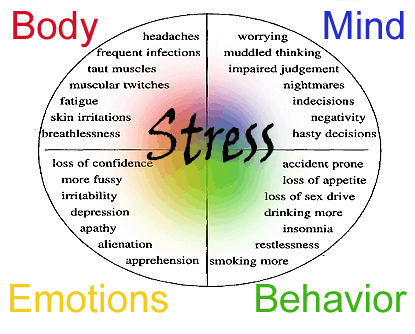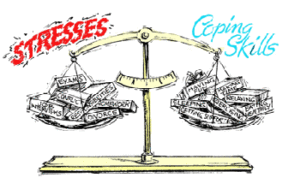What Does Stress Cause, How is Related to Our Health, and What To Do To Reduce It?

Stress is a common thing we all experience at some point. It is somewhat correlated to the humanistic ancient need of survival mechanism of fight or flight. In ancient times we lived in nature and had to be ready to protect ourselves to survive. Evolutionarily this mechanism has evolved somewhat but still exists and is mostly present when we are in stressful situation. Now, we also know that some people freeze as a coping mechanism and not just deal with it or run. Stress can serve as a positive motivator in certain situations, as long as it is not debilitating of course. When does it become debilitating? When it transforms into anxiety, and irrational fear of future.
For some people, anxiety is part of their lives. They live in constant fear of something that they think might happen, even if it is something irrational. Their mind plays tricks on them and causes them to think things might happen. Their anxiety provokes a physiological response that could potentially lead to panic attacks as well. For someone experiencing anxiety, the fact that it might not be anything that is happening at that moment yet. The thought of the possibility is as debilitating and negatively affected if their fear was an actual reality. Nonetheless, stress can be somewhat healthy at times if it is a motivator for change or as a preparation tool (increases stamina) for an important event (i.e., job interview, important test, etc.). You can take a quick quiz about topic here.
Stress can affect our lives in many different ways. It increases the chances for strokes, heart disease, high blood pressure, colitis, insomnia, kidney stones, diabetes, migranes, depression,fatigue, sex problems, skindisease, allergies, and many more. Let’s discuss few facts about what does stress do to your body. It makes your heart beat faster because your heart is pumping blood faster to your muscles as if you are in danger and you need to run to safety. Your heart doesn’t get used to everyday frustration like a traffic jam or stress at work. overtime, extra aggravations and anxiety adds stress on your heart. Long-term stress can also wear down and weaken your immune system, and leave you more vulnerable to infections. Some people grind their teeth due to stress, and not even know they are doing it. You might not know it but your liver is a source of energy in our body. When you are stressed your liver will create more blood sugars, and by that increase your chances of diabetes. You can learn more here and here.
Daily exercise can burn off stress, boost your mood, and help you gain more energy. A lof of the time it is the last thing you feel like doing after a stressful day, but it is your best option to relieve stress and feel better. Going on a walk/run, talking to a friend, cuddling with your partner or your pet are all positive stress reliever choices. However, if you find yourself smoking another cigarette, having another beer, or finding something else to eat as comfort those are probably not the best choices.
The most important thing is to find ways to alleviate your stress and not to let it pile up and become a chronic condition. Counseling can definitely help as well. In therapy, you can learn to use meditation, deep breathing, and guided meditations as a form of stress relief. You learn to use positive coping mechanisms to deal with everyday stressors. Some tips can be found here. If you have further questions or would like to learn more please contact me here.



